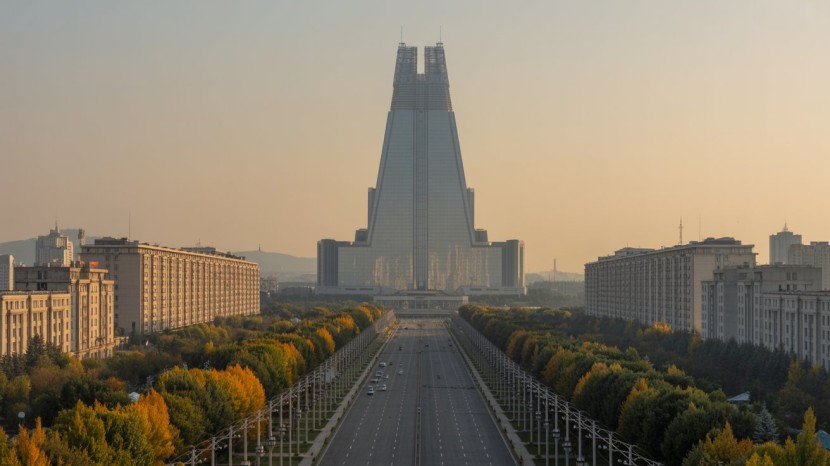Published on
August 21, 2025
The prospect of resuming North Korean tourism has been a topic of growing interest in South Korea, with government officials considering opening the borders for individual tourists. However, as North Korean tourism laws evolve, safety concerns have surfaced. These laws could impose severe penalties on tourists who inadvertently violate regulations, leaving South Korean tourists in a precarious situation. North Korean tourism has always been a point of fascination, yet the legal risks make it a sensitive matter for South Koreans who wish to explore Pyongyang and beyond.
The North Korean Tourism Law: A Potential Threat to South Korean Tourists
In August 2023, North Korea introduced a sweeping tourism law that significantly impacts tourists, including those from South Korea. This law grants the North Korean government extensive control over tourism, including the ability to impose criminal penalties on visitors who break certain regulations. South Korean tourists, who might be unfamiliar with the intricacies of these laws, are at risk of serious consequences if they unknowingly breach them.
The law prohibits actions such as “reconnaissance acts,” which could be broadly interpreted by North Korean authorities. This provision is particularly concerning for tourists, as activities like taking pictures of specific locations or interacting with local residents could be seen as espionage. This ambiguous wording leaves room for authorities to interpret infractions at their discretion, creating uncertainty for travelers. As a result, tourists might face fines or even criminal prosecution for seemingly innocent behavior, raising alarms about their safety and legal protection.
Potential Impact on North Korean Tourism Industry
Beyond the safety concerns, the legal framework surrounding North Korean tourism raises critical questions about the ethical implications of tourism in the country. The tourism law places significant power in the hands of the North Korean government, which controls every aspect of the industry. Article 7 of the law mandates that all tourism-related activities, including policy formulation and oversight, fall under the state’s jurisdiction. This centralization could lead to revenues from tourism being funneled directly to the North Korean regime and its elite, which may violate international sanctions designed to prevent the funding of military developments and weapons programs.
For South Korea, this presents a dilemma. While individual tourism may not directly violate international sanctions, the potential for revenue to reach sanctioned entities complicates matters. This has raised alarms among experts, who believe that any resumption of tourism to North Korea must first address the financial implications and ensure that funds are not diverted to support the regime’s weapons programs.
South Korean Tourists and Their Vulnerability in North Korea
The new tourism law has added to the concerns regarding the safety of South Korean tourists in North Korea. In addition to penalties for minor infractions, the law also stipulates the possibility of criminal liability, subjecting visitors to arrest, trial, or imprisonment. This presents a serious risk, especially for South Korean tourists who may not be fully aware of the nuances of North Korean regulations.
Past incidents have only heightened these fears. One of the most tragic events was the shooting death of South Korean tourist Park Wang-ja in 2008. While Pyongyang claimed that Park had entered a restricted military zone, South Korea’s repeated requests for a joint investigation into the incident have been ignored. This unresolved case, along with the imposition of harsher tourism laws, has left many questioning whether the risks outweigh the potential benefits of resuming tourism to North Korea.
The Role of South Korea in Reopening Tourism
South Korea’s government is considering a cautious approach to reopening tourism to North Korea, especially in light of the potential risks posed by the new tourism laws. While some government officials view tourism as an opportunity to improve inter-Korean relations, others warn that the lack of clear safeguards for South Korean tourists makes such plans premature.
The government is under increasing pressure to investigate past incidents, like the 2008 shooting, and to ensure the safety of tourists before making any decisions. The potential for future incidents, combined with the restrictive and opaque nature of North Korean laws, makes the return of tourism to the Noth a complicated issue.
Ensuring the Safety of South Korean Tourists in North Korea
If tourism to North Korea is to resume, experts argue that the North must guarantee the safety of visitors and address past issues like the 2008 shooting. South Korean tourists, in particular, should be provided with clear guidelines and protections to avoid violating North Korean laws inadvertently. Without these safeguards, the idea of reopening tourism may be seen as too risky, especially given the harsh legal consequences for minor infractions.
Moreover, South Korea must consider the broader implications of tourism in North Korea. The country’s tourism laws and the potential for profits to fund the regime’s military projects pose significant ethical concerns. For many, the decision to engage in North Korean tourism is not only about safety but also about whether such actions inadvertently support a regime known for its controversial policies and human rights violations.
A Cautious Path Forward for North Korean Tourism
The revival of North Korean tourism remains a contentious issue, especially with the implementation of strict tourism laws that leave little room for error. While South Korean tourists may be eager to visit the country, the potential for legal repercussions, combined with the unresolved issues of past incidents, makes the situation complex. For any meaningful return to North Korean tourism, both governments must take steps to ensure the safety of tourists and clarify the legal landscape, making it possible for tourism to resume without putting South Korean tourists at risk
